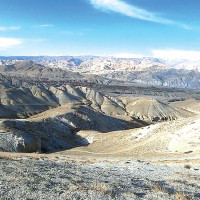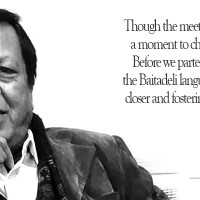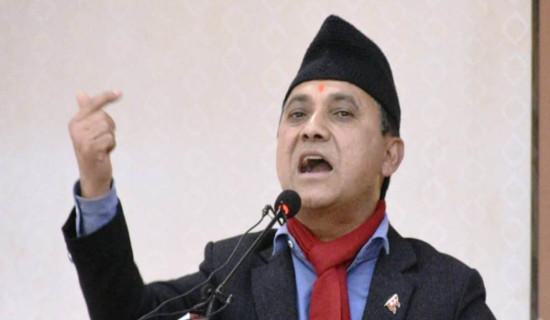- Saturday, 17 January 2026
'Kuikhyang' discussed
By A Staff Reporter,Kathmandu, Feb. 19: A discussion on Kuikhyang, a contemporary poetry collection focused on Rolpa, was held in the presence of literary figures in the capital.
Published by the Rolpa Art and Literature Foundation, the collection consisting of 51 poems by 51 poets was compiled and edited by poet Yug Sarvanam.
Organised recently by the Foundation, the discourse on the poetry collection featured Bhim Kumakhi, president of Jana Sanskritik Mahasangh, writer Bandana Dhakal and researcher and writer Nabin Bibhas as commentators.
Kumakhi highlighted that the poetry collection has empowered the voice of the oppressed and exploited communities. He noted that the citizens of Rolpa, from where the armed conflict of the then Maoists began, still possess a strong rebellious consciousness. According to him, the collection not only addresses profound historical questions but also raises discussions on cultural aspects. "The poems about the rebellion vividly depict the cultural impact on society during and after the conflict," he said.
Writer Dhakal emphasised that from a political perspective, the poems in the collection play a crucial role in helping the general public understand the Maoist revolt. She explained that reading the poems about the rebellion and struggle of the people of Rolpa would evoke a strong emotional response from readers, which is natural. She mentioned that the people of Rolpa have always chosen rebellion against state oppression, and this rebellious spirit is part of their identity. "The poems of the collection will help critique the state’s glorified narratives about various wars throughout history," she commented.
According to her, the collection will help present history from a new perspective.
Researcher and writer Nabin Bibhas stated that the poems in the collection not only reflect the armed revolt but also play a significant role in the journey towards justice. "The collection paves the way for new ideological struggles in contemporary political contexts," he mentioned. According to him, the collection portrays the Maoist revolt from philosophical and cultural viewpoints. Despite the horrific and brutal nature of war, he highlighted that the collection successfully reveals its creative reflection. Bibhas said, "The title of the collection itself features a sense of cultural identity concerning Rolpa and the revolt."
Editor Sarvanam explained that the word Kuikhyang is derived from the Magar Kham language, which means giving a gift or offering as a token of goodwill. Rolpa is a district with a large population of Magar Kham speakers.
The discussion, chaired by Jeevan Prabesh Roka Magar, president of the Rolpa Art and Literature Foundation, was facilitated by Bachchu Himansu.

















